Monday Feb 16, 2026
Monday Feb 16, 2026
Thursday, 6 September 2018 00:00 - - {{hitsCtrl.values.hits}}
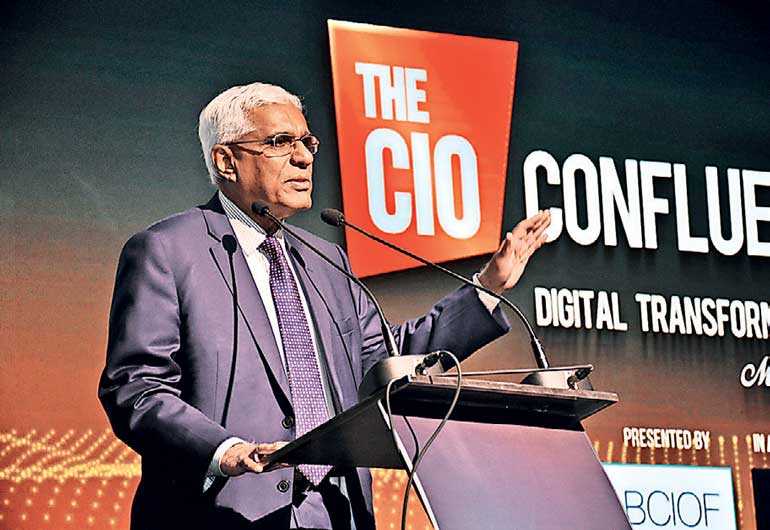 Central Bank Governor Dr. Indrajit Coomaraswamy
Central Bank Governor Dr. Indrajit Coomaraswamy
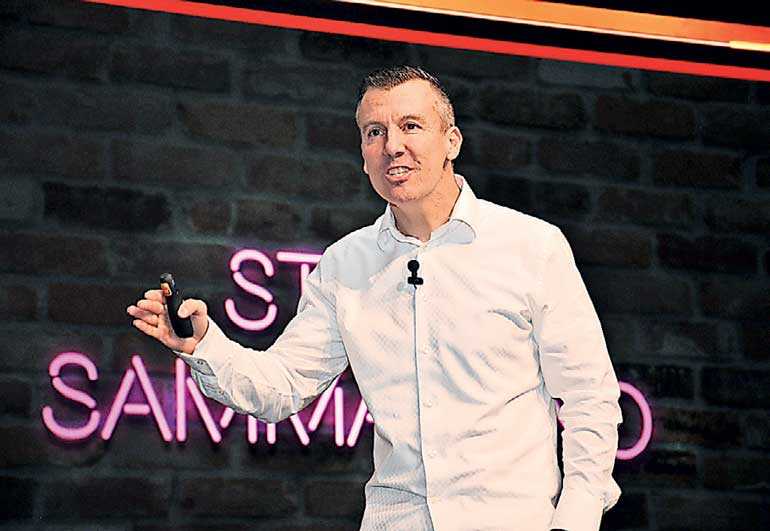 Keynote Speaker Futurist and Business Technologist Steve Sammartino
Keynote Speaker Futurist and Business Technologist Steve Sammartino
By Charumini de Silva
The CIO Confluence 2018 titled ‘Digital Transformation: Making Banking Invisible’ concluded on a high note, with experts sharing insights on reinventing the customer journey, leveraging the power of data, redefining operational and distribution models.
The one-day conference was organised by the Banks’ CIO Forum (BCIOF) in association with Pencil Works, with over 300 tech-savvy participants and invitees from various industries attending the forum.
The keynote was delivered by world renowned Futurist, Author, Technologist and Speaker Steve Sammartino, who shared his perspectives and views on the fast growing digital transformation through his experiences of working for several Fortune 500 companies.
Future thinking
Emphasising that the future which everyone is talking about is already here, he called on the banking industry to embrace change and inculcate an attitude of future thinking to build a strong economy in the digital era.
He pointed out that there was an astounding difference between industrial revolution and technology revolution. “The industrial revolution was all about the location and hard infrastructure. Now we are moving from that to interoperability to virtual,” he explained.
In terms of the changes that are taking place in the current banking industry he said that currency was technology. “Cryptocurrency is inevitable and it is here to stay. However that doesn’t mean the actual currency will disappear. We need to be agnostic about it,” he added.
In addition he said that blockchain would help banking industry significantly in reducing the administrative costs, while also being a preferred tool for regulatory reporting particularly in terms of Know Your Customer (KYC).
He insisted banking professionals should think into the future. “Nobody in history thought that the most powerful tool will be inside their pocket, the smartphone. We are now going to change our economy and reshape our industry to make it the industry of the world. We are working to respect it, to help transact, to boost business to a level you have never done before,” Sammartino pointed out.
Asking some interesting questions such as ‘can algorithms be a customer?’ and ‘can future cars buy themselves?’ he said all that was possible with the technology revolution. “Things (assets) will be your customers in this digital era. This is the type of thinking you need to have. Algorithms and things as your customers,” he added.
Privacy and security was acknowledged at the utmost important in taking banking industry to next level with the use of new technology. “This is the revolution. No one has better internet. We all have the same internet and same revolution. So we need to embrace where technology is going and build the world we want to live in,” he said.
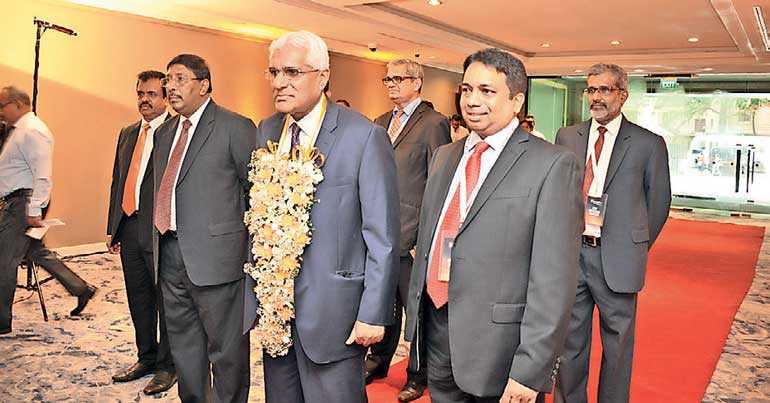
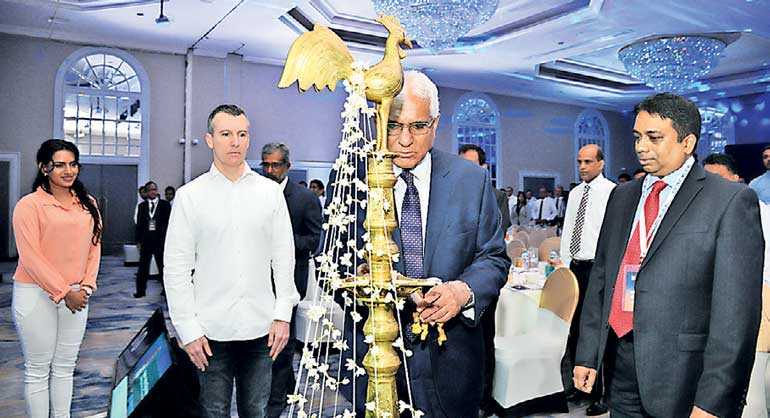
Emojis, new global language
Taking the audience through the history of humanity, new technology and what’s happening in the banking industry, he said emojis had become the biggest technology that had impacted the lives of people.
“You thought that emojis would never catch on. Irrespective of what language we speak, through emojis we have been able to express ourselves. We have to open up our minds to things that we once thought was never possible. For the first time in human history we are moving towards a global language that everyone can read, no matter what language we speak. We are moving towards ‘cryptographic’ language of emojis,” he added.
Sammartino strongly believes that if we understand human behaviour and history, then we have a template to understand the tools and technology change in terms of what’s going to happen next. “Technology and tools will change the objectives. We are using these tools in ways to achieve all objectives,” he said.
Describing school as a factory of 13 years of mandatory learning without making mistakes, he claimed that this teaching method restrained people from experimenting. “From the age of five we just learned to do as we were told, without making mistakes. We were told to memorise everything we were told and every time we made mistakes it was marked in red ink to notify that it’s dangerous. This is why it is hard for us to experiment with things in life, particularly when new technology arrives because we were trained that way. The challenge here is that we need to learn to experiment and find things to scale up.”
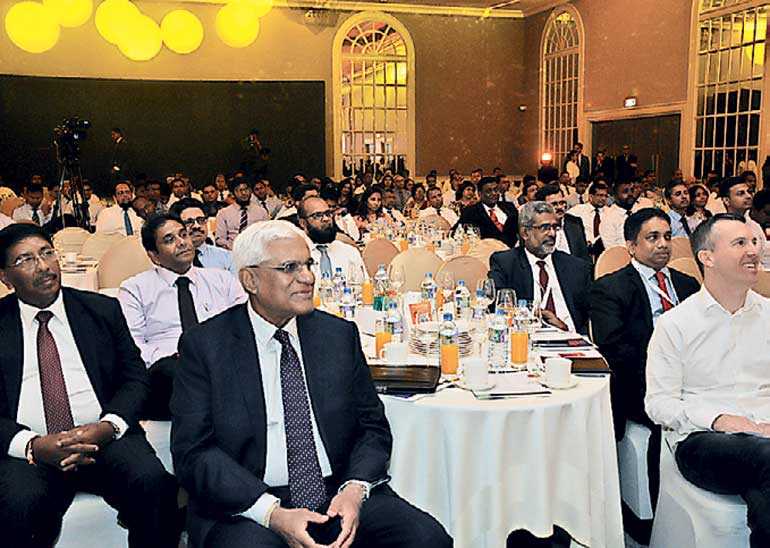
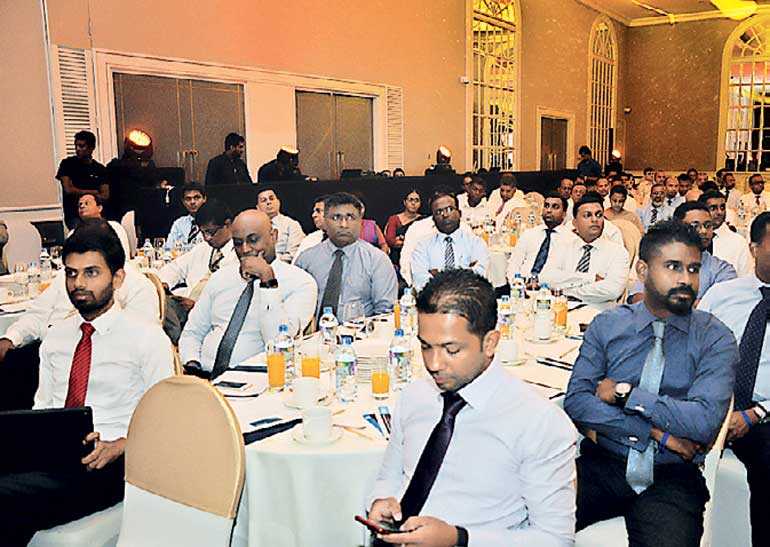
The evolution
Taking a look at the industrial economy, he said there was a formula that had worked successfully for 200 years, which is the basically the developed Western economy with ‘one picture’ or ‘one box’. “All of us work in and around in these industries, it is almost like a box that includes work, travel (transport) retail and watch (home/TV). This is the everyday economy that all of us are living in. Life in different boxes,” he pointed out.
Sammartino said all of these boxes that we live in could now be performed with the help of low cost technology. “Work is information-based and it can jump across borders without a passport. The geographic barriers that used to protect our economy sometimes evaporate through connected digital world. It is all changing due to exponential technology,” he said.
Calling the human brain old fashioned, he said it hadn’t got upgraded for 2,000 years. “The problem with these exponential changes is that the human brain is not exponential. The human brain is linear. We have to believe in fantasy because it is what drives innovation. We never thought the smartphone could be such a powerful tool two decades ago,” he stressed.
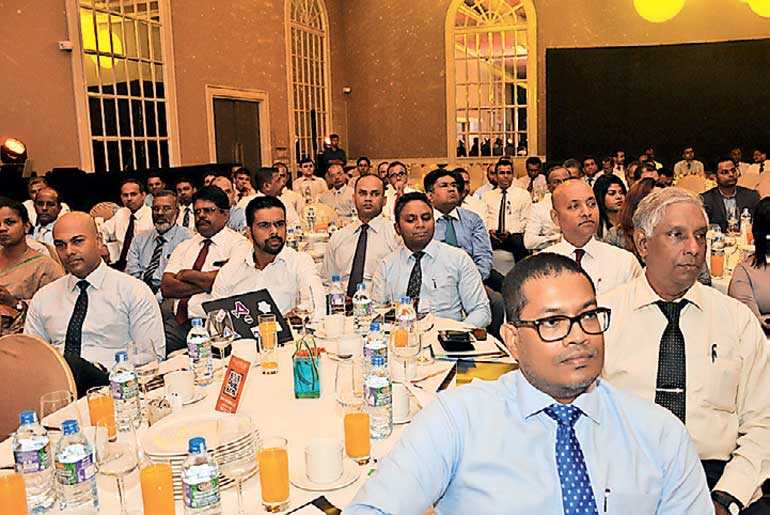
On average he said an individual touches their mobile 300 times a day and barely makes a phone call because it has now upgraded to the level of a super computer. Highlighting that no one gets a better phone, he called it one of the best features that comes out with it as both rich and poor have access to the same product.
For the first time in history he said labour, location and type of work is no longer a concern in the unconventional economy taking a leapfrog from the industrial economy. “If there has ever been a chance in the world economy for things to change, it is right now. Countries that are educated and have gaps in infrastructure such as Sri Lanka are best positioned to take advantage,” Sammartino pointed out.
In the revolution of technology he said technology changes what is true in the banking industry. Asserting 2018 as the year of voice, he said the people were now able to get work done through a voice command in different platforms. He said people would be able to talk to walls, which was one time considered something crazy people did.
In the world of Internet of Things (IOT), he insisted that banks would soon start transacting with ‘things’ and not people. “My fridge will buy its own things for me, observing my consumption patterns. It will have its own bank account. A drone will come with the goods I want, the roof will open up and I will have my food for a week,” he said, describing the kind of world we are going to live in.
Sammartino also said that even if many were not able to do coding right now, in 10 years’ time everyone would be able to talk to their computers. “You will train it like a dog; that is where technology is going,” he added.
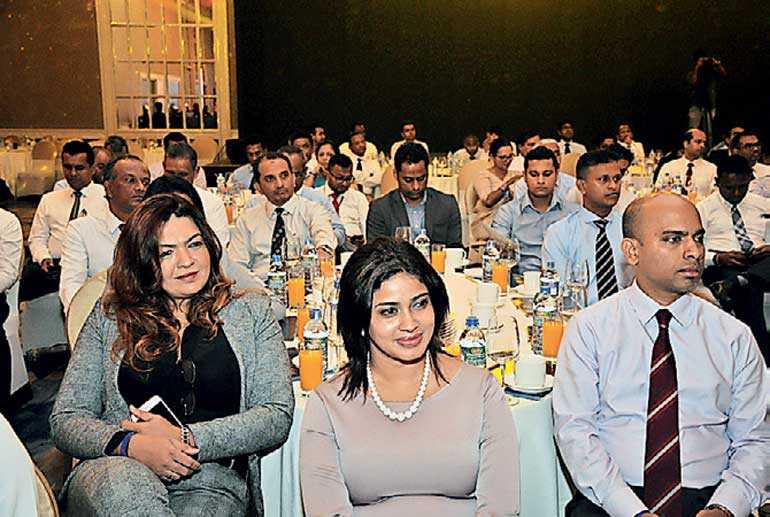
Humans first, technology second
Sammartino dismissed concerns over technology replacing people. “You know that an Apple store has more staff than any other retailer in the world. That is the opposite of what we expect from technology because the norm is that technology replaces people. No! Technology augments when it is used well. It increases humanity and decreases inhumanity. Humans first, technology second and that is the hierarchy,” he emphasised.
He pointed out that business we are in is the problem that we solve, not the product we sell because someone else will always sell the product. “We need to execute against that future which is already here. Someone already has that great idea, but we need someone who has the courage and the wisdom to execute that idea.”
Sammartino cited Qantas as an example which developed a whole new costing structure looking at customer problems with its services instead of letting its brand lose its value. In addition he cited RadioActive band which redefined the business model of the usual download system to a donation model.
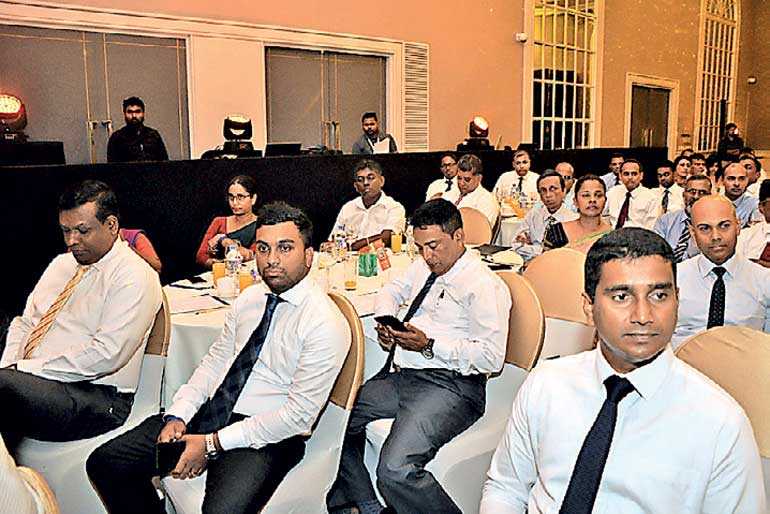
“Instead of selling on their own they gave 30% as a donation each time someone downloaded their album. Digital contribution is that your top line will decline, but your margin will increase.”
Sharing how he made use of technology to raise funds to build his LEGO car with a friend whom he met on internet, Sammartino said none of the established firms came forward to offer the funds required to build it, noting that their business models didn’t support such projects.
“My friend approached my attention by sending a message that he wanted to build a spaceship. When we went to companies and requested them to fund the project, they refused. We made a video which went viral. The next day I tweeted requesting 40 people to donate $ 500 each to fund this project and I got 80% of the money the following day to my PayPal account,” he said.
He described it as a classic example of building business on trust.
Sammartino also handed over ‘The Lessons School Forgot’ to Chief Guest of the forum Central Bank Governor Dr. Indrajit Coomaraswamy.
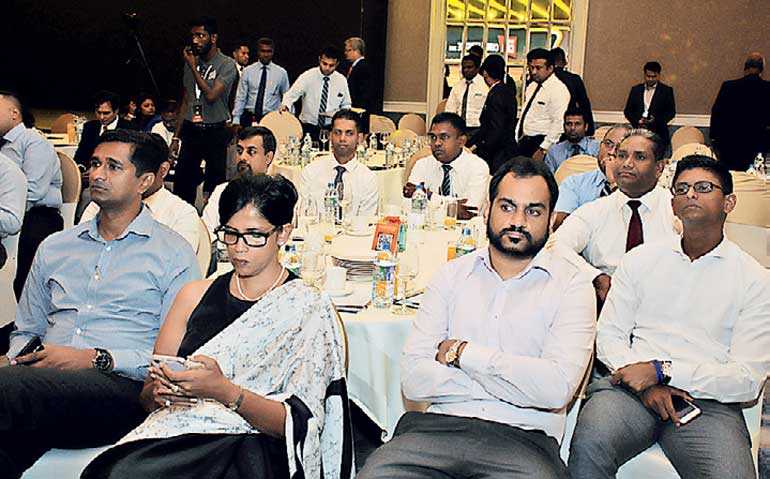
Experts shared insights on Omni channel experience, seamless payment experience as to how, where and when the customer decides, UI/UX and cross selling opportunities under the first theme and architecture, ESB, API, SOA, process automation such as internal customer needs, workflows, RPA, Customer Relationship Management (CRM) systems, Software Defined Networks (SDN), IOT and high performance agile internal teams under the second theme.
The third topic of leveraging the power of data shared information on advanced analytics such AL and machine learning and personalised communications and offers while the final topic will focus on the sub topics; work with partnerships such as telcos, insurance and government organisations, collaboration with fintech and open API banking.
Thought leaders Asian Region Axiate Group Berhad Regional CEO Dr. Hans Wijayasuriya and Global Operations IronOne Technologies Co-Founder and CEO Lakmini Wijesundera also shared the stage with the audience.
The conference also featured two panel discussions moderated by N-able Managing Director and Chief Executive Peter D’Almeida and IBM World Trade Corporation Head of Software Sales Manori Unambuwe respectively.
The event’s Exclusive Main Sponsors were Oracle and EZY Corporation, Platinum Sponsors were Microsoft and VSIS and Gold Sponsors were Millennium Information Technologies, TATA Communications and Aurionpro. Daily FT was the Official Print Media Partner.
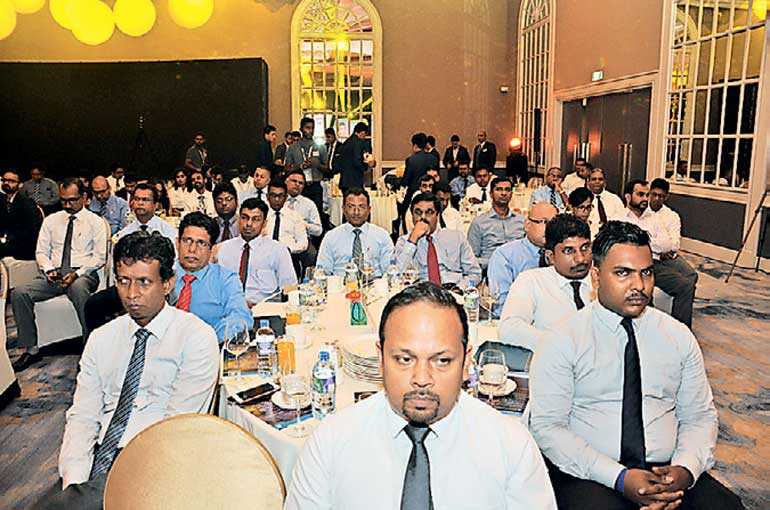
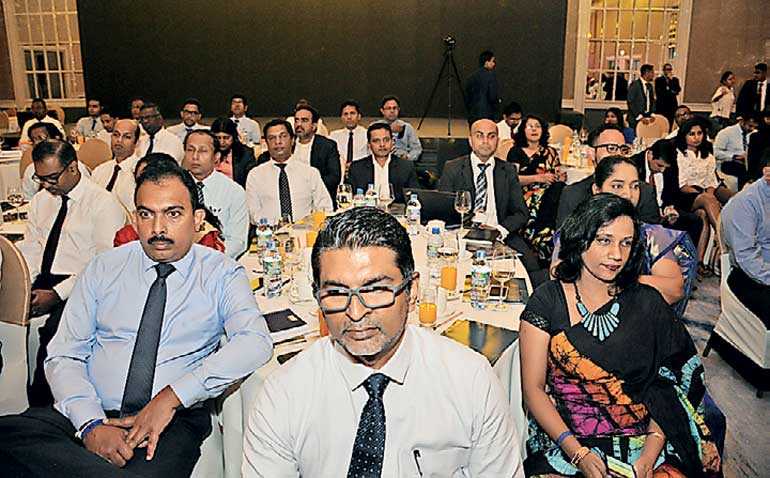
Pix by Lasantha Kumara